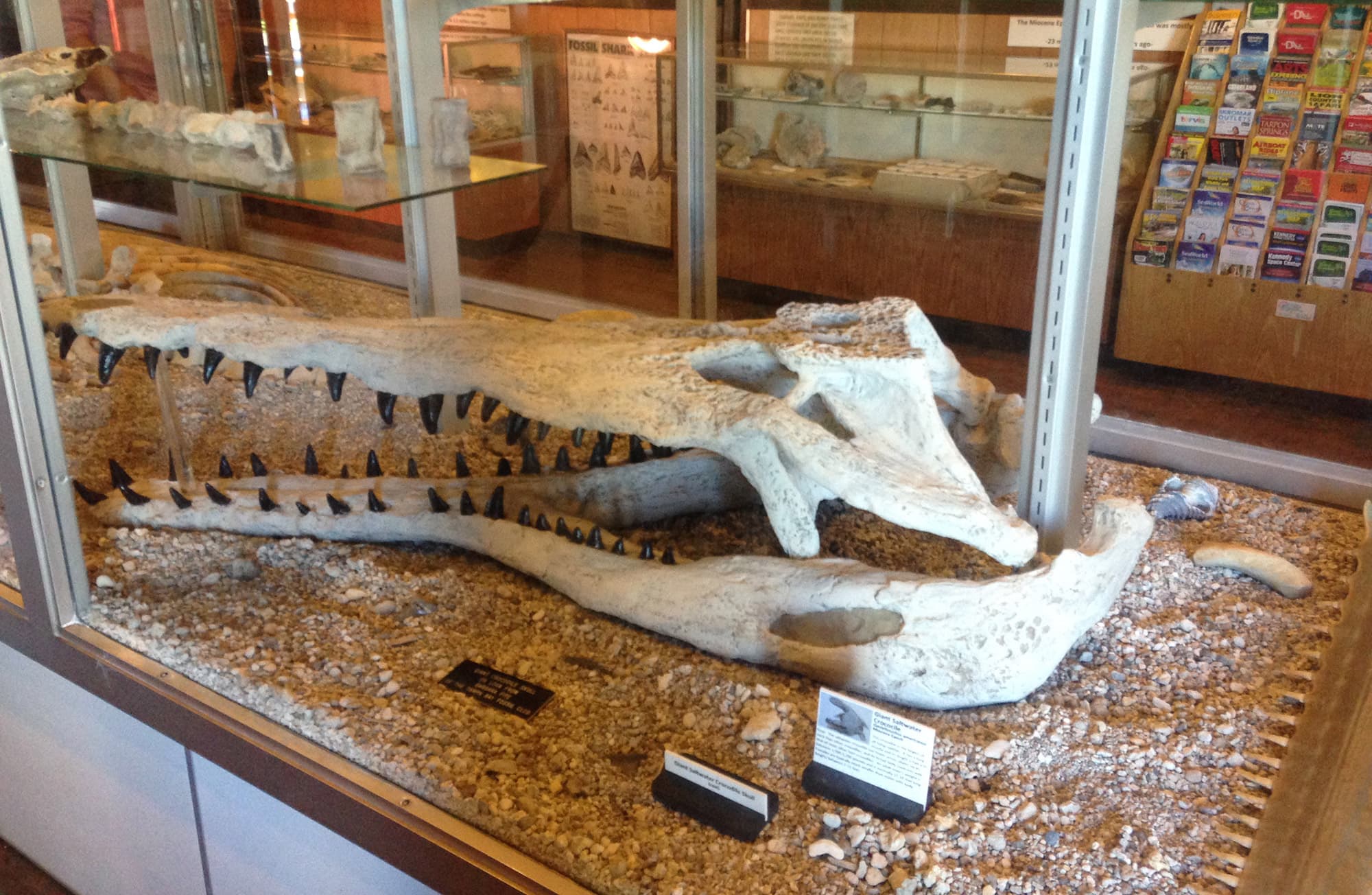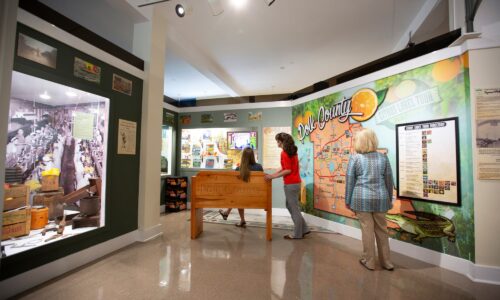Through exhibits, programming and museum tours, Mulberry Phosphate Museum invites you to learn about the history of Mulberry. From prehistoric times to today, the Museum examines the impact phosphate has had in this area.
Insider Tip: If you are planning a trip to the Mulberry Phosphate Museum, carve out a little extra time to see the Mulberry Cultural Center, just across the street. It hosts local art exhibitions.
Museum Galleries
Mulberry Phosphate Museum features four galleries, or areas. Your tour will be an introduction to the relationship of marine life, reptile and mammal remains with the modern phosphate industry.
Phosphate Gallery
This gallery is located inside 2 boxcars. An 1880 American Standard locomotive was acquired by the museum after it was discovered 2 miles east of Mulberry in 2012. A bright yellow Seaboard Coast Line 1949 locomotive is the other boxcar. Inside, you’ll learn where phosphate is found, how it’s mined and processed, and how it’s used today.
Historic Railroad Gallery
Inside a second set of boxcars, visitors will see historic photos and information about the city, railroad industry and phosphate industry.
Fossil Gallery
The Fossil Gallery is in a historic train depot. The Depot is home to a prehistoric fossil collection that was acquired from the Bone Valley Fossil Collection in Bradley, Florida. This area of the museum includes fossils of sea and land creatures including whales, dolphins and sharks, land creatures such as tortoises, rhinos and giraffes and arrowheads.
Dragline Area
Mulberry Phosphate Museum’s outdoor exhibit is the one kids love the most. It’s an area for fossil digging. Visitors will see a 44-yard Dragline bucket that was once used to dig phosphate rock. Kids can dig behind a mound of rock and search for shark teeth and prehistoric animal remains.
The Mulberry Phosphate Museum is a great place for year-round family-friendly fun. The Museum offers fun events throughout the year that include Shark Week activities, fossil celebrations and S.T.E.A.M. Saturdays.




